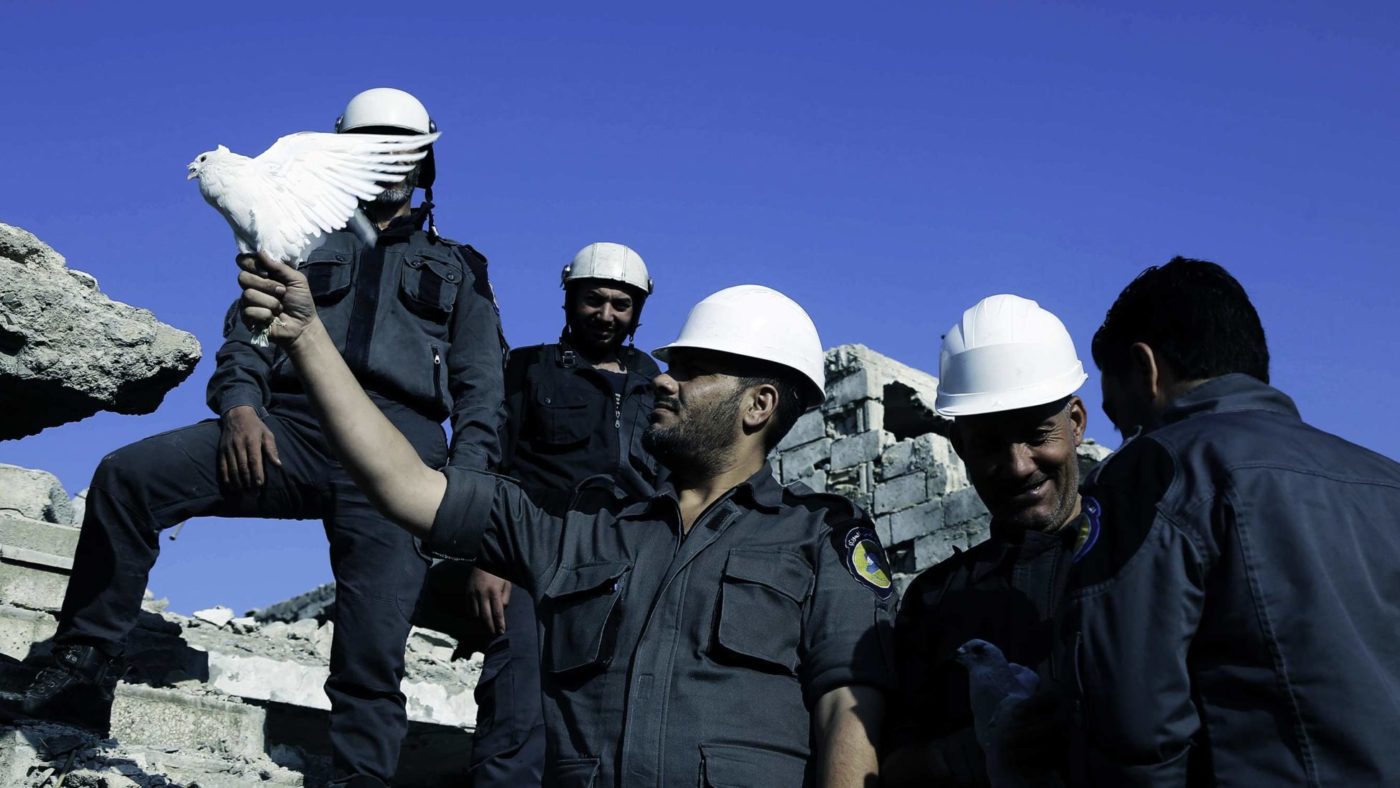Every so often governments undertake acts of unarguable good. These moments are rare, and they are frequently small, justifiable less in terms of their large-scale consequences than their own morality or merit. But governments must still be induced to act in this way. And good ought to be recognised when it is done.
One such action took place on Sunday. The evacuation, by Israel and Jordan in concert with the United States and other Western nations, of over 400 civilian rescue workers from Syria, members of Syria Civil Defence — known as the White Helmets — and their families. They will be transported to Germany, Canada and Britain in the coming months, to begin new lives away from war.
In the face of advances by the Assad regime, those evacuated were transported from southwest Syria over the Golan Heights and into Jordan. Footage released by the Israeli military shows more tension than relief in the faces of those rescued. This is good, vital humanitarian work. It is unarguably right to help Syrians who are willing to be moved away from the war which has destroyed their country.
But assisting those who face active and concerted threats to their lives is even more necessary. The White Helmets are so threatened. Members of Syria Civil Defence are heroic people who face horror daily in the aftermath of regime and Russian air strikes; they pull casualties out of destroyed buildings and administer what medical aid they can give to those wounded. They face also the real prospect of retribution.
Their work, widely hailed outside Syria, is not popular with the regime. Mitigating the effect of the war’s cultivated brutality is not viewed favourably by the authors of that brutality. Filming the aftermath of air strikes and providing evidence of war crimes, similarly, is not something the dictator can allow to go unpunished. Had those White Helmets who were rescued last week remained in place, they would have been in great danger.
With the regime capturing new territory in the south as it advances on Daraa, and facing little external opposition, it will take brutal revenge on those it sees as its opponents – including those engaged in humanitarian work which it has not licensed, and which is not to its advantage.
The regime specially targets rescue workers by mounting ‘double-tap’ airstrikes, in which attacking planes circle back to launch a second attack intended to kill first responders. Hundreds of White Helmet volunteers have been killed in this and other ways. This physical violence exists at one end of a continuum of opposition to the White Helmets’ activities, led in part by the Russian and regime-funded state media.
The White Helmets have been the subject of a sophisticated web of vile conspiracy theories, which, inter alia, suggest that the rescuers are Western intelligence agents or al-Qaeda fighters in disguise, or allies of the Islamic State (ISIS). These are all untrue, but are increasingly common on the extremes of Western politics, attracting support from the international alt-right and its allies and outriders, as well as left-wing websites such as Alternet.
Such theories originate from pro-regime outlets and are magnified by Russian state media, including the English-language versions of RT and Sputnik, which has been relentless in pushing White Helmets conspiracy theories.
Suffice to say that these falsehoods are motivated by a desire to traduce any Syrian who does not follow the interests of the Assad regime; to diminish the capacity those who document regime abuses to be believed; and to justify the wholesale murder of those who pull victims of aerial attacks from the rubble. Last night’s evacuation of White Helmets has already produced more conspiracy theories.
Israel’s involvement all but guaranteed gauche expressions of pre-existing mania, while the fact that some White Helmets and their families may soon end up in Britain has given new life to the bizarre notion that they are all assets of MI6. That such things will continue to be said does not diminish the good of what has taken place. But there is real risk that this action could merely represent another stage in the West washing its hands of Syria.
After all, if small-scale action generates good headlines, there is less incentive for Western governments to engage in the much harder work of helping the millions of Syrians still suffering at the hands of Assad and his allies. The war is not over; it is not ending. Evacuating even the most at risk will do nothing to stabilise or bring peace to Syria.
In retrospect, this rescue could come to represent a gesture of true futility, a sign of our governments’ unwillingness and inability to do more, and standing testament to the world’s perverse helplessness in the face of a murderous despot.


